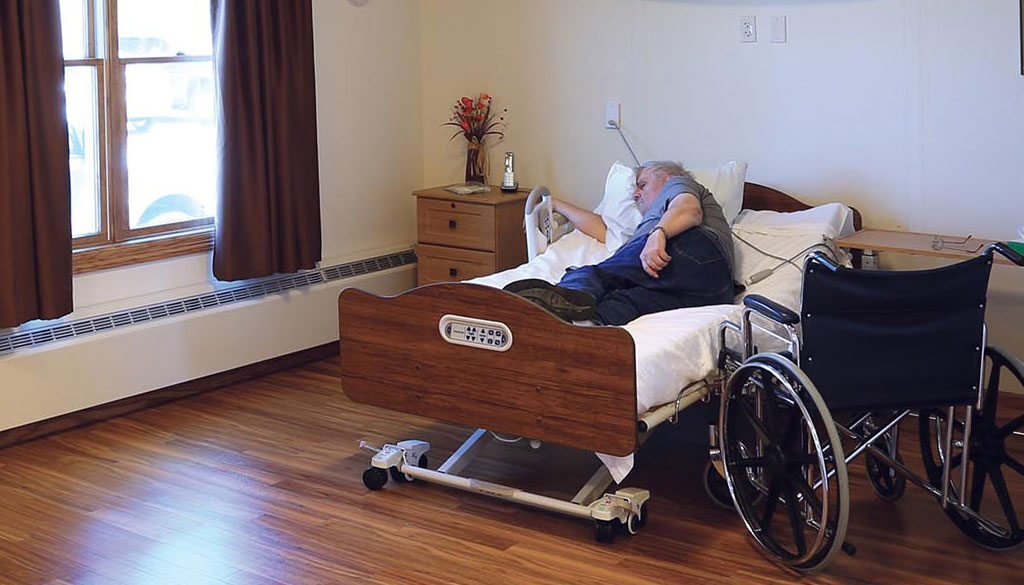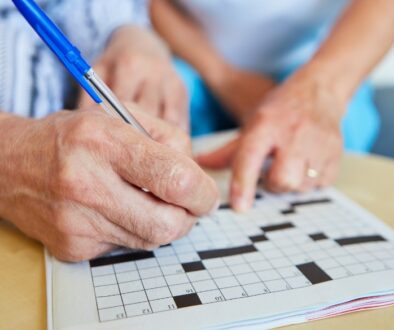Sleep Problems and the Elderly
Poor sleep has been linked to everything from car accidents to increased risk of obesity and cardiovascular disease. But when does typical tossing and turning cross over into problem territory? We often accept sleep interruptions as an unavoidable part of the aging process, but experts say that while some differences are normal, others are decidedly not.
What follows are some common, normal changes to sleeping patterns that seniors can expect to see over the years, plus abnormal changes that require further investigation.
Normal:
Sleeping Fewer Hours
“As you get older, not only will you likely have more trouble falling asleep, but you can expect shorter duration,” says Chris Bratner, a Certified Sleep Science Coach at SleepZoo.com. “In fact, while experts recommend 7-9 hours for most adults, seniors are recommended to get 7-8 hours.” Some seniors can even get as little as 5 hours per night and still function without impairment.
Changing Up Your Sleeping Pattern
Even if you’ve spent the past 60 years going to bed at 10 p.m. and waking at 6 a.m., there’s no guarantee that pattern will continue once you reach a certain age. In fact, it’s more likely that you’ll experience some major changes in your sleep schedule and may never completely resettle into a predictable routine.
Lighter Sleeping
As we age, we tend to spend less time in slow-wave sleep — the portion of our cycle known as the “restorative phase” — as well as less time in rapid eye movement (REM) sleep. Without ample time to heal, build muscle and store energy, everything from mood to strength is ultimately affected. Changes in this so-called “sleep architecture” could be a normal part of aging, but they could also be traced to inorganic causes (psychiatric disorders and physical illness, for example) and lead to progressively disrupted sleeping patterns.
Abnormal:
Repeated Awakening During the Night
Occasionally waking up to use the restroom or get a drink of water isn’t in itself a red flag, but if you find yourself wakend by an urgent bladder more than once per night, there may be an underlying issue.
“Causes could be an enlarged prostate, hormone changes or sleep apnea,” says Dr. Kent Smith, a pioneer in the field of dental sleep medicine and host of “Pillow Talk,” a weekly broadcast program on KAAM 770 in Dallas. “These, in addition to insomnia onset in later years, would be reason to seek the advice of your doctor.”
Insomnia
Even more taxing than repeated awakening is the inability to get any shut-eye at all. About one-third of the population suffers from at least mild insomnia, and elderly people with existing health problems are at even greater risk. Plus, researchers have found a link between insomnia and increased fall risk due to contributing factors such as more time spent moving around in the dark, impaired psychomotor function, and issues with balance and reaction time.
Breathing Trouble
Smith also advises patients to speak up if they see their partner gasping during sleep or if they find themselves awakened by their own gasping. Shortness of breath and excessive daytime drowsiness can both be indicative of sleep apnea, a serious condition in which breathing repeatedly stops and starts while you’re asleep. There are several types of sleep apnea, each with a different cause. Diagnosis often depends on the study, and treatments range from surgery to home continuous positive airway pressure (CPAP) machines.
Sleep-Related Mood or Behavioral Changes
Everyone’s a little extra grumpy after a crummy night of rest, but communication specialist Jackie Gutierrez of St. Paul’s Senior Services warns that “increased mood swings, sundowning behavior, confusion and memory loss are signs you should consult your doctor.”
That’s because those symptoms are associated with dementia-related sleep changes and tend to be especially prevalent among those with Alzheimer’s Disease. As Alzheimer’s progresses, patients may spend as much as 40 percent of the night awake and then make up for the lack of rest by dozing during the day.
How to Improve Your Sleep (At Any Age)
One thing almost all experts agree on: great sleep sometimes takes work. If you’re not resting as comfortably or as long as you’d like, try the following tips.
- Cut back on coffee and tea. The older we are, the longer it takes to metabolize caffeine, and what you drink in the morning could still affect you at night.
- Create a sleep-conducive environment. “Sleeping in a dark, cool environment, void of technology, is ideal,” says Smith.
- Seek out interaction during the day. Getting involved with your community, staying active, and engaging in the meaningful conversation exercise your brain and your body so you’re ready for rest once it’s lights out.
- Play white noise or nature sounds. This helps drown out the neighbors or traffic noise, allowing you to drift off more easily.
- Change your diet. Avoid big meals before bedtime, and fill up earlier in the day on sleep-friendly foods like nuts, lean protein, whole grains and melatonin-rich fruit.
- Try a glass of warm milk. It may sound like an old wives’ tale, but it turns out, your parents were onto something: warm drinks help the body produce melatonin, a hormone that helps regulate your sleep cycle.
- Upgrade your duvet. Donna Chambers says she founded her company, SensaCalm because she wanted to help people find a natural way to achieve better sleep. “If you wake up throughout the night or find yourself doing 3 a.m. laps around the house in an effort to feel sleepy again, a weighted blanket may promote better sleep quality,” she suggests. “In addition to improving the release of serotonin, weighted blankets have been shown to help the body produce more melatonin, the chemical that regulates sleep.”
To sum up: it’s essential to get to the root causes of abnormal sleep changes, rather than just assuming they’re normal parts of aging.
“While we experience natural sleep changes as we age, it’s speculated that many of reported sleep problems may actually be caused by illnesses and the prescriptions used to treat them — poor sleep is often a side effect,” says Bratner. So before chalking up your daily fatigue to Mother Nature and accepting it as unavoidable, schedule a checkup and ask your doctor whether any of your medications or supplements could be a factor.
Author and Washington, DC-based certified sleep educator and registered nurse Terry Cralle agrees. “Consider sleep a vital sign. Sleep should be discussed at every healthcare provider encounter. Healthcare providers should be incorporating sleep assessments in healthcare assessments — offering sleep disorder questionnaires and screenings.”
If your doctor doesn’t ask how you’re sleeping, don’t be afraid to broach the topic yourself. A good night’s sleep is worth its weight in gold, and that’s one thing that doesn’t change as you age.
Source: caring.com
Stay up to date on current news from The Neighbors of Dunn County.




